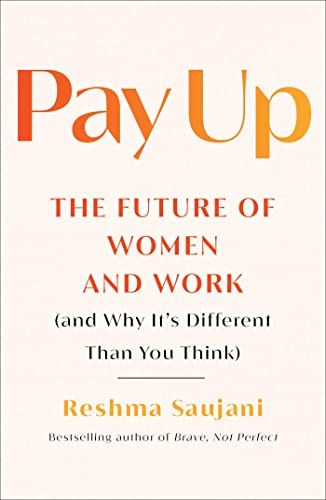Products You May Like
I always knew I wanted to have kids. When I was in kindergarten, I would surround my bed with stuffed animals. When Cabbage Patch Kids hit shelves for the first time, I made my dad wait outside Kmart for 10 hours so I could have my very own baby. Even my first job was as a dog walker—clearly, I just couldn’t wait to cuddle, nurture, and I suppose, clean up poop.
Years later, as a young, miserable lawyer in New York City, I spent my days sneaking glances at the wallet-sized picture of my niece, Maya, that I kept pinned up behind my desk. Back home, my walls were plastered with photos of us together, and I longed for the day when I’d have snapshots of my own kids to hang alongside them.
From my late 20s to late 30s—the time my doctors would call “peak fertility,”—I quit my job, ran for a seat in the House of Representatives, lost spectacularly, got married, wrote two books about women’s leadership, and launched a company teaching girls to code. And during that same decade, I also had 5 miscarriages, underwent more rounds of IVF than I would like to remember, and cried myself to sleep countless nights, before finally welcoming my son Shaan into the world in 2015. My son Sai followed in 2020.
Like any mom, I love my children more than anything in the world. But I can’t help but wonder if—had I started my career now rather than in the early 2000s—I would have fought so ferociously to become a parent at all.
During the pandemic, life beyond my Zoom screen didn’t look so hot. I did my best to keep up the façade—throwing on red lipstick and hoop earrings every day—but the new baby in my lap and five-year-old in Batman pajamas banging on my bedroom door didn’t exactly scream, “SUCCESS!” During one especially brutal afternoon in which both Batman and a wailing Robin decided to crash a video call, a 20-something-year-old woman who works in my company said, “I look around at all of you and think, There’s no way I want to put myself through that.”
She’s not the only one. Today, the American birth rate has plummeted to a historic low. More and more women say they never want to have children—at least in part because of the transparency so many of us moms have championed. Women are speaking out about feeling overjudged and under-supported by our government, our communities, and even our spouses; about how a lack of childcare options has forced us to abandon paying jobs to become unpaid personal chefs, fight-referees, and splinter-removers. We’re sounding the alarm about workplaces that have taken us for granted; never given us the support we need to do our best work. Throw in a global pandemic—and a front row seat to the tantrums, stains, and the impossible charge of doing it all, let alone having it all—and it’s no wonder women are closing the door to motherhood.
I’m extraordinarily grateful that the whisper of discontent has grown to a primal scream; that I’m no longer expected to confine my personal life to a school photo hidden behind my desk, or to pretend that everything is okay when it feels, so often, like the world is falling apart.
But at the same time, whether it’s for fear of being a “wimp” or a need to focus on their own challenges at work, too many non-moms are unwilling to add their voices to that cry for help. And I know moms’ problems aren’t going to go away if childless women—and childless men, for that matter!—close the door on not just motherhood, but mothers. Because whether you have kids; or want kids, but don’t know when; or don’t want kids, but may change your mind; or have no idea whether you want kids, but believe you have the time to figure it out, you have the obligation to ensure that the choice to parent—and the ability to parent without sacrificing your sanity and everything you’ve worked for—is yours, and every person’s, to make.
Fortunately, young workers have more leverage than ever before in protecting that choice. Faced with a Great Resignation and a historic labor shortage, companies can’t afford to not listen to the demands of their workforce, and finally provide moms the resources they need to make work, work. And already, we’re starting to see employees exercise that power. According to one poll out of England, one in five employees aged 18-35 have quit their jobs over poor parental leave policies. Meanwhile, over half of millennials consider reproductive rights a deciding factor in accepting a job offer, while 9 in 10 employees want flexibility in where and when they work—with millennials twice as likely as baby boomers to leave their jobs for more accommodating ones. We have to keep the pressure up and convince even more allies to fight for moms’ rights. Because today, as we reimagine everything about how we live and work, we have a once in a generation opportunity to make sweeping changes on behalf of parents—present and future.
It’s why I encourage my niece, Maya, now only a few years younger than I was when I first hid that photo of her behind my cubicle, to start considering family planning and fertility. Will the company she’s set on working for offer paid time off after an abortion or miscarriage? Will the insurance they offer cover IVF or egg freezing? I ask her to think long and hard about starting a career in a city or state that bans abortion, or fails to offer paid family leave, or universal pre-K—even if the need for those things in her life feels impossibly far away right now.
I urge her to become an informed advocate for the workplace policies, practices, and perspectives that would make working parenthood not only possible, but actually enjoyable and sustainable for her—and for the millions of moms who have left paying jobs and see no pathway back to them. That includes everything from flexible scheduling and predictable hours, to on-site childcare and paid sick leave; from returnships and mental health resources for moms reentering the workforce, to performance evaluations that prioritize output over face time.
And I ask her to take an active role in dismantling the “motherhood penalty”—that is, working against the biases and policies that prevent moms from reaching their fullest earning potential at work after having children. It’s a penalty that comes with a steep cost: one study found that women’s earnings decrease by four percent for every child they have; men’s earnings, on the other hand, increase by more than 6 percent upon becoming fathers. The only way to close that gap is to cultivate a workplace culture in which men are not only encouraged but expected to take parental leave and do their share of unpaid labor at home.
I always knew I wanted to have kids. But now, I know that having kids can’t be the sole impetus for fighting for parents. Because only when we get everyone on board—moms and dads, women who aren’t yet parents, and women who never will be, people who love kids and even people who can’t stand them—can we hope to create a world that anyone would be proud to bring children into.
This content is created and maintained by a third party, and imported onto this page to help users provide their email addresses. You may be able to find more information about this and similar content at piano.io


